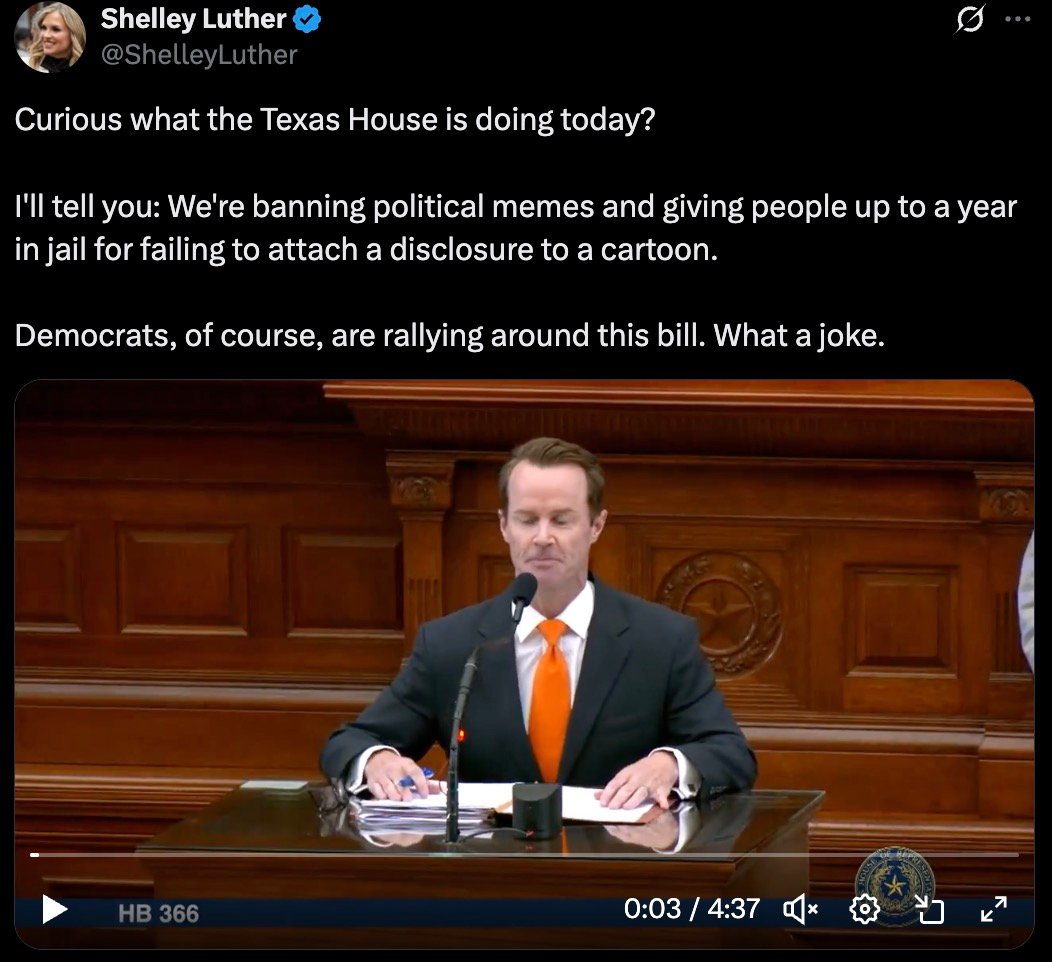A new piece of legislation passed by the Texas House of Representatives has drawn fierce backlash for what many see as a direct assault on political speech and internet freedom. House Bill 366, deceptively framed as a measure to combat AI “misinformation”, would in reality make it a criminal offense to share altered political content; such as memes or edited videos, unless it carries a government-mandated disclaimer.
Championed by former House Speaker Dade Phelan, whose political career has been marred by controversy, the bill passed with bipartisan support.
If enacted, it would treat the unapproved sharing of such content by campaigns or candidates as a Class A misdemeanor, punishable by up to a year behind bars.
Simply spending more than $100 to promote an altered image, video, or audio clip without the required government-approved language would be enough to trigger prosecution.
What’s being dressed up as election integrity is, at its core, a disturbing attempt to police satire, commentary, and political expression.
The text of the bill prohibits publishing or distributing political advertising that includes any media “that did not occur in reality,” including content altered with generative AI, without a prominently displayed disclaimer.
The Texas Ethics Commission would be tasked with deciding exactly what this mandated language should look like, right down to its size and color.
Platforms that host or display the content, like internet service providers, broadcasters, and billboard companies, are exempt from the law’s penalties. But the individuals or campaigns responsible for the content are not, creating a chilling effect on anyone daring to use satire, parody, or digital commentary to criticize politicians.
Opposition has exploded on social media. State Rep. Shelley Luther, a Republican, said bluntly: “We’re banning political memes and giving people up to a year in jail for failing to attach a disclosure to a cartoon.” Her remarks reflect growing anger over the government’s attempt to decide what political expression is permissible, and what will be punished.

Even among Republicans, discomfort with the bill is evident. State Rep. Andy Hopper stated plainly: “It is not the role of government to sit there and be a nanny state police force to decide.”
Nevertheless, Phelan brushed off the concerns, saying, “All this does is tell you to add a disclosure that you are using altered media.”
But to critics, that kind of rationale only reinforces how far the government is willing to reach into constitutionally protected expression. Disclaimers may seem minor, until failure to use them lands someone in jail for a meme.
Although the bill includes a minor exemption for changes in “superficial quality” such as color or brightness, it does nothing to protect parody or commentary, which have long been core pillars of political discourse. It draws an arbitrary legal line around digital creativity and gives the government power to punish those who cross it.
Whether HB 366 survives the Senate and gets signed into law by Governor Greg Abbott remains to be seen. But the implications are already dangerous: elected officials, increasingly shielded from criticism, are moving to criminalize the tools used by ordinary citizens to hold them accountable.













